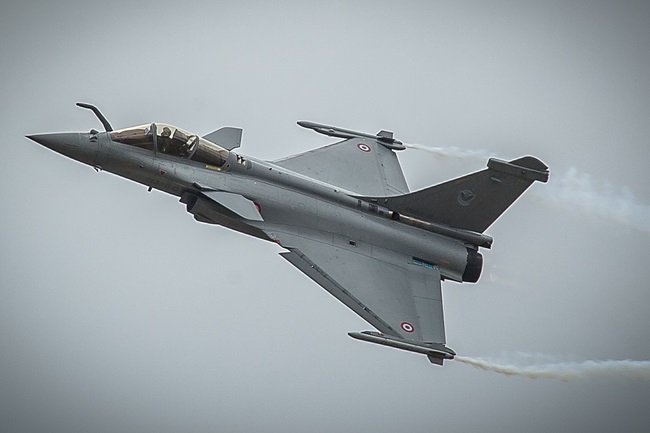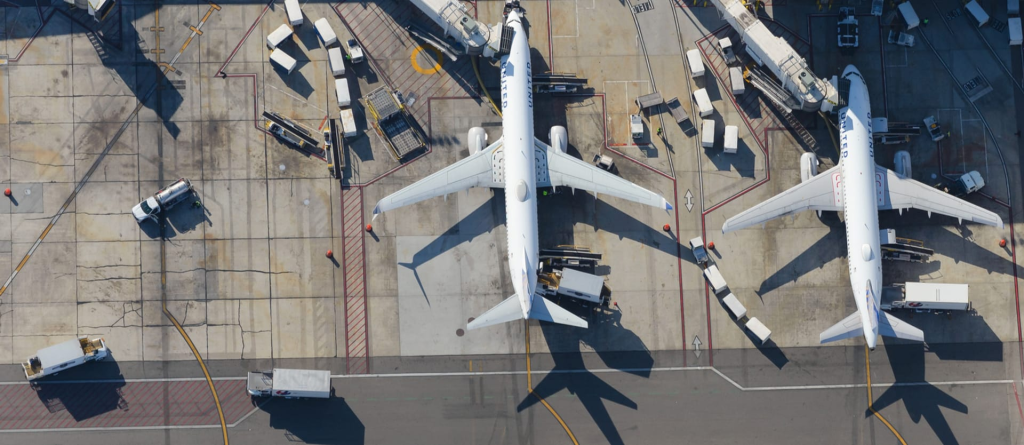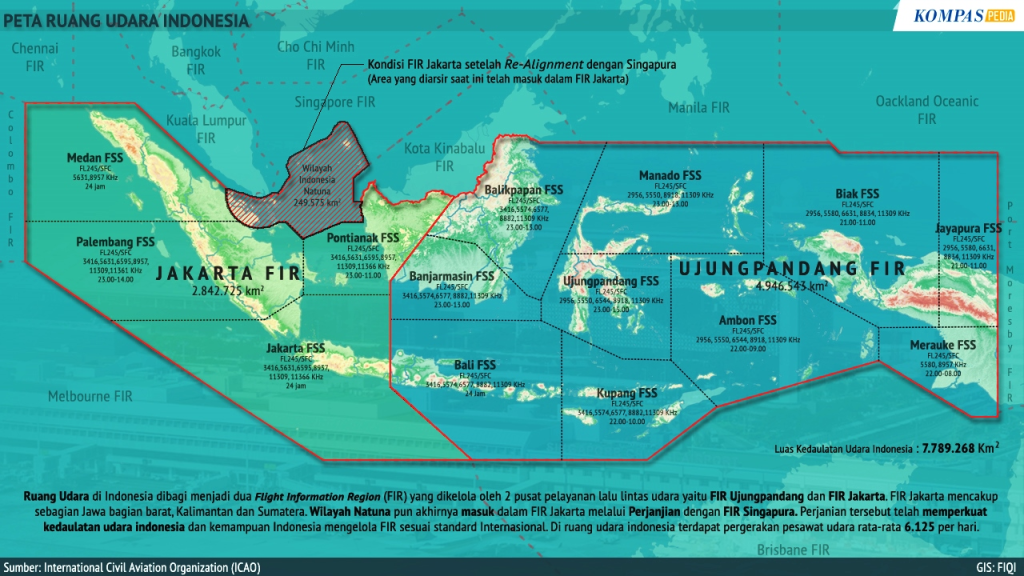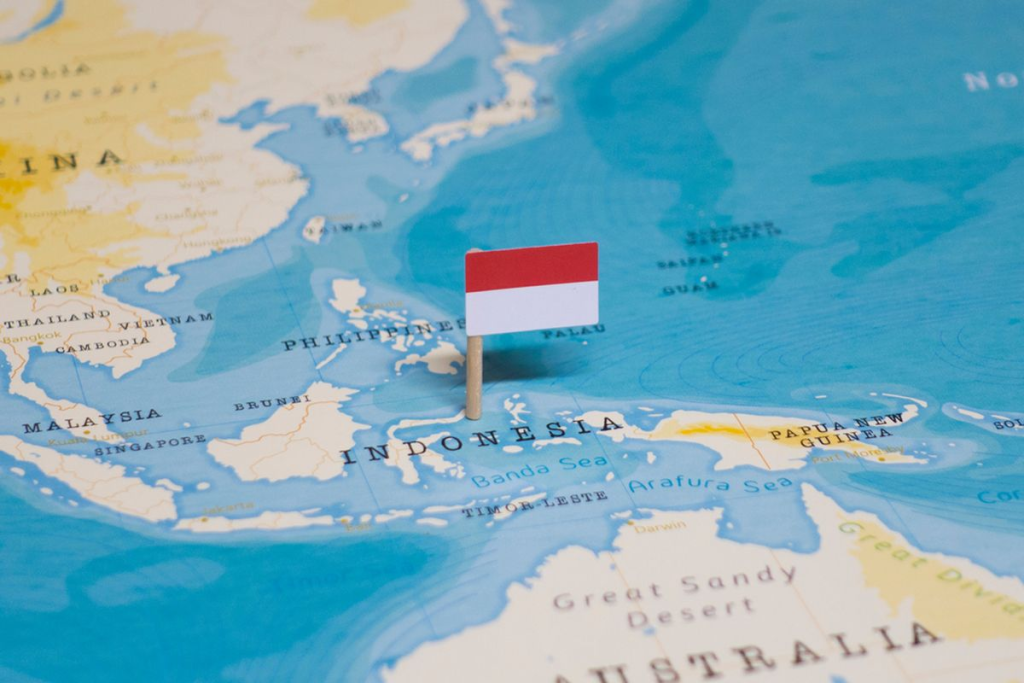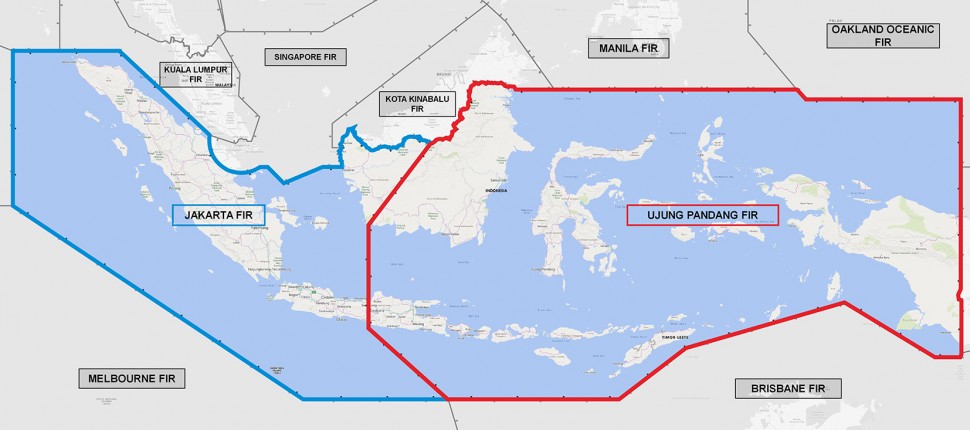Analysis of Chappy Hakim’s Thoughts from the Perspective of International Law
JAKARTA, NETRALNEWS.COM – A country’s independence is generally understood as the ability to determine its own fate in various aspects, including politics, economy, and defense. In the context of Indonesia as an archipelagic nation, the air dimension is often overlooked in discussions on sovereignty. However, for Air Chief Marshal (Ret.) Chappy Hakim, air sovereignty is a crucial element of true independence. According to him, without full control over its airspace, a country is not fully sovereign.
Air Sovereignty in International Law

- Fundamental Principles of Air Law
The 1944 Chicago Convention serves as the foundation of international air law. Article 1 of this convention states:
“The contracting States recognize that every State has complete and exclusive sovereignty over the airspace above its territory.”
In principle, every country has full sovereignty over the airspace above its territory. However, in practice, this sovereignty is regulated by international norms that accommodate global civil aviation rights, air navigation cooperation, and mechanisms for sharing responsibility in air traffic management.
- FIR and Technical Sovereignty
The Flight Information Region (FIR) illustrates the complexities of air sovereignty. FIR management by the International Civil Aviation Organization (ICAO) is determined based on technical and flight safety considerations. In Indonesia’s case, the FIR over the Riau and Natuna Islands has been managed by **
Singapore* since the post-colonial period. Chappy Hakim highlights this as an anomaly in sovereignty that must be corrected by building proper infrastructure and human resources to enable Indonesia to manage its own FIR.
- Overflight Rights and Liberalization
Agreements such as the International Air Services Transit Agreement (IASTA) regulate the freedoms of the air, which allow foreign nations to pass through another country’s airspace without landing. Although this agreement is based on reciprocity, it also limits a country’s ability to fully control air traffic in its territory.
Theoretical Approaches: Absolute vs. Relative Sovereignty
- Absolute Sovereignty Theory Jean Bodin and Thomas Hobbes .
They argue that sovereignty is the highest, indivisible power. From this perspective, a state must have full control over its airspace. Chappy Hakim’s views align with this approach, emphasizing that without absolute control over airspace, a nation cannot be considered truly independent.
2. Relative Sovereignty and International Constitutionalism
Hans Kelsen and Hersch Lauterpacht suggest that state sovereignty must be linked to international norms. In an increasingly interconnected world, international cooperation in air traffic management is unavoidable. Therefore, FIR management by another country or granting overflight rights does not necessarily violate sovereignty, provided there is a mutually beneficial agreement.
Geopolitical and Air Defense Dimensions
Beyond legal aspects, air sovereignty is closely linked to geopolitics and national defense. As an archipelagic nation located between two oceans and strategic international air routes, Indonesia faces challenges in maintaining its air sovereignty, including:
- Airspace violations by foreign aircraft, both civilian and military.
- Dependence on foreign technology for air defense systems, including radars and missile defense.
- Limited surveillance and interception capabilities against foreign aircraft.
Chappy Hakim argues that Indonesia must strengthen its Air Defense Identification Zone (ADIZ) and develop a more independent air defense system to enforce air sovereignty effectively.
Indonesia’s Context: From De Jure to De Facto Sovereignty
Legally (de jure), Indonesia has sovereignty over its airspace, as stipulated in Law No. 1 of 2009 on Aviation. However, in practice (de facto), several challenges hinder the realization of full sovereignty, such as:
- FIR over Riau and Natuna Islands is still managed by Singapore up to 37,000 feet
- Limited technology and human resources for air navigation management.
- High rates of airspace violations by foreign aircraft.
- Dependence on bilateral agreements for overflight rights.
To address this, Indonesia must strengthen its national capacity in airspace management by:
- Accelerating the full takeover of FIR from Singapore by building adequate air navigation infrastructure.
- Developing independent radar technology and air defense systems to reduce reliance on foreign technology.
- Enhancing air diplomacy in international negotiations on overflight rights and airspace management.
- Strengthening the Indonesian Air Force (TNI AU) for air surveillance and interception to prevent airspace violations.
Conclusion
Chappy Hakim highlights air sovereignty as a crucial element of true independence. While international law recognizes air sovereignty in principle, its implementation is often constrained by global norms and agreements. Therefore, Indonesia must strengthen its national strategy to ensure full control over its airspace, legally, technically, and strategically.
Air sovereignty is not just a legal issue but also a matter of a nation’s capacity to defend its territorial integrity. By enhancing synergy between diplomacy, technology, and air defense, Indonesia can ensure that its airspace remains under national control.


